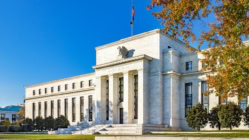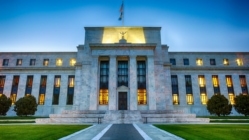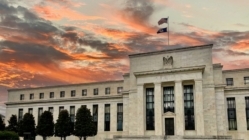Record Low Inventory And 12-Day Closings
There are about 1,460 active listings in the two counties near our SF Bay Area office – the lowest number I have ever seen … by far! (In contrast, there were almost twice as many at this time in 2021.)
Because inventory is so incredibly tight, we are seeing multiple offers everywhere despite today’s higher rates.
As a result, the majority of the contracts we’re getting are 12-day and 14-day closings, as fast closings continue to entice sellers.
Hence, we are again encouraging our buyers and agents to ask about our 12 and 14 calendar (not “business”) day closings.
Giant Pool Of Money Is Keeping Rates High
The “Giant Pool of Money” references one of the most famous podcasts of all time. NPR News and This American Life combined forces in 2008 to create a fascinating podcast to explain the craziness that fostered 2008’s housing crisis and mortgage meltdown.
The “Giant Pool of Money” itself was the huge chunk of savings and cash in various investment and pension funds around the world, totaling about $80 trillion at the time (when U.S. GDP was only about $15 trillion – to give some perspective).
That giant pool of fund managers was desperate to find any type of positive return they could when rates were being held artificially low. And mortgage-backed securities (with their bullsh*t triple-A ratings and high yields) were extremely enticing.
As a result, much of the giant pool poured into mortgages, creating the biggest bubble of all time.
Well… that Giant Pool of Money is now several times larger (probably a few hundred trillion) and it is sloshing around like never before.
But instead of mortgage-backed securities, much of that money is sloshing into a very hot stock market.
This is what makes the sloshing pool of money analogy so apt though: when trillions of dollars slosh into stocks, those same trillions have to slosh out of or away from another asset class (such as cash, or more likely, bonds).
Long story short – when investors en masse are plunging into stocks, they are avoiding bonds. And when there is less or insufficient demand for bonds, yields or interest rates go up in response (to entice investors to still buy those bonds).
We are seeing this play out right now with major stock indices in the U.S. hitting record levels. A U.S. Treasury auction performed poorly yesterday in fact largely because so many investors were focused on stocks instead of bonds.
So, when the stock market corrects (and it will at some point), expect rates to plummet; that giant pool of money will slosh out of stocks and back into bonds.
























